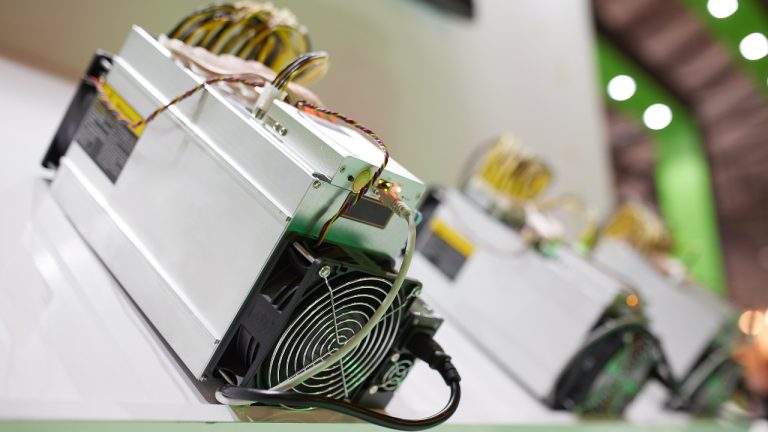Compass Mining Alerts Bitcoin Miners of Changes in Bitmain’s ASIC Design
Publikováno: 8.3.2023
 Compass Mining, a bitcoin mining firm, published a blog post stating that Bitmain, the company behind the application-specific integrated circuit (ASIC) mining rig, has made changes to its design. The post advised miners to be aware of the changes as Compass Mining identified “three issues” with two different Antminer S19 series mining devices. Bitcoin Miner […]
Compass Mining, a bitcoin mining firm, published a blog post stating that Bitmain, the company behind the application-specific integrated circuit (ASIC) mining rig, has made changes to its design. The post advised miners to be aware of the changes as Compass Mining identified “three issues” with two different Antminer S19 series mining devices. Bitcoin Miner […]

Compass Mining, a bitcoin mining firm, published a blog post stating that Bitmain, the company behind the application-specific integrated circuit (ASIC) mining rig, has made changes to its design. The post advised miners to be aware of the changes as Compass Mining identified “three issues” with two different Antminer S19 series mining devices.
Bitcoin Miner Compass Mining Identifies 3 Issues with Antminer S19 Series
Compass Mining, a bitcoin mining company, posted a blog post titled “Bitmain Changed Its ASIC Design. Miners Need to Be Ready,” highlighting changes in Bitmain’s ASIC design. Compass believes bitcoin mining facility operators should be aware of the changes, which could cause issues. For example, the firm identified three problems with the Antminer S19, producing 90 terahash per second (TH/s), and the S19 XP, offering 140 TH/s.
William Foxley of Compass Mining explains that the new machines lack a peripheral interface controller (PIC) on the ASICs, making it harder to control individual hashboards compared to those with a PIC. The devices use aluminum plating on the side of the mining rig, which Foxley believes may contribute to overheating issues. Additionally, there is a “consolidation of all components onto one side of the board, causing an increased chance of hashboard errors.”
Foxley explains that without a PIC, units cannot underhash on “one or two boards,” and hashboards made with aluminum plates may fail more frequently in hot climates like Texas than those made with printed circuit boards (PCBs). Additionally, Compass Mining believes non-Bitmain repair shops may face difficulty replacing damaged chips. The operations team discovered these issues within the last six months, and they “significantly affect a unit’s performance.”
In conclusion, Foxley notes in the blog post that third-party firmware could address the PIC issue and enable a miner to run on one or two boards. Third-party firmware can also lower specific variables to keep the ASIC mining rig cooler. The post suggests selecting the best environmental conditions as another solution. However, regarding the aluminum plating, Compass Mining views it as a net negative.
“We view the design decision to swap to aluminum-plating on hashboards as a net negative–one that will increase ASIC failure and underhashing while increasing service and maintenance costs,” Compass’s blog post concludes. “Paired with the lack of a PIC and increased difficulty of swapping out bad chips, we encourage miners to double down on their repair game as they onboard next generation units into their fleets.”
What do you think of Bitmain’s decision to change its ASIC design? Share your thoughts in the comments section below.